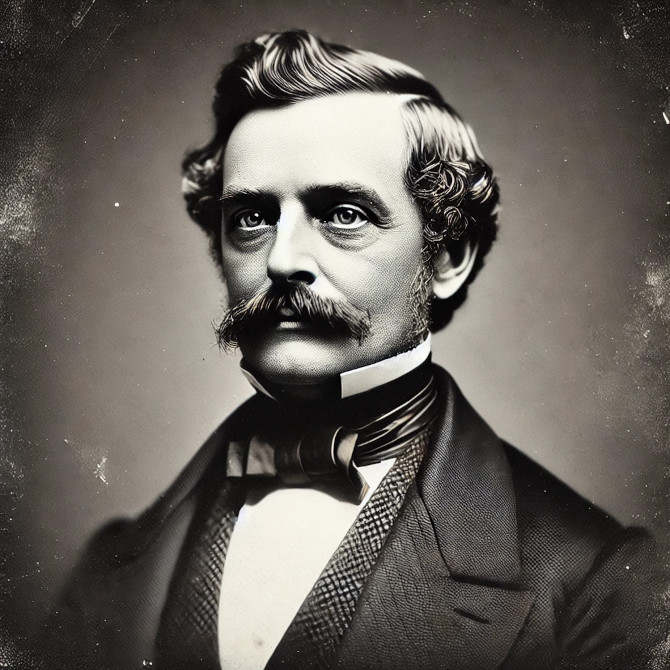Robert G. Ingersoll was born in the year 1833. He was a man who did not walk through life quietly. He was a man who thundered. He was born in Dresden in the state of New York. His father was a preacher. His home was filled with sermons and scripture. Yet young Robert did not follow the path of faith. He questioned. He doubted. He pushed against the walls that confined him.
He became a lawyer not because it was easy but because it was a battle. He understood that words had power. He understood that a well-crafted argument could turn the tide of a trial. He built his career in Illinois. He fought cases that tested the limits of justice. He defended the accused. He protected the vulnerable. He believed in fairness. He believed in reason.
But the law was not his only stage. His voice was too large for courtrooms alone. He became a speaker. A lecturer. A force that could not be contained. He spoke of freedom. He spoke of truth. He spoke of a world where superstition did not rule over reason. He spoke against the fire of hell. He spoke against the weight of dogma. He spoke against the chains that held men’s minds captive.
He was called The Great Agnostic. He did not believe in fear. He did not believe in blind obedience. He did not believe that morality came from the sky. He believed that kindness was enough. He believed that love was enough. He believed that truth should not bow to myth.
His speeches were not polite. They were not soft. They were fire. They were battle cries. He stood before crowds that reached into the thousands. He filled great halls with his voice. He challenged ministers. He debated theologians. He tore apart the arguments of those who would rule through fear.
He defended Charles Darwin. He defended the right to think. He defended those who had no voice against the great machine of tradition. He spoke of women’s rights. He spoke of racial equality. He spoke of a future where people were judged not by faith but by their deeds.
He was loved. He was hated. He was feared. He was admired. His words were printed in newspapers. His lectures were repeated across the country. He inspired. He infuriated. He refused to be ignored.
He lived as a free man. He lived as a fighter. He lived as a man who would not bow to the gods of the past. When he died in the year 1899 he left behind no church. No doctrine. No creed. He left behind only words. Words that still burn. Words that still question. Words that still demand that men think for themselves.

No Responses